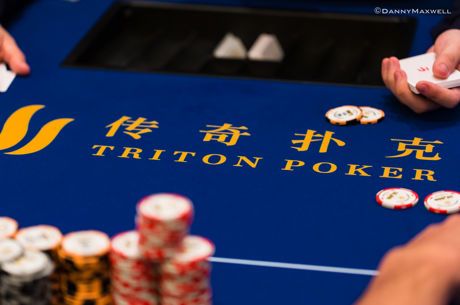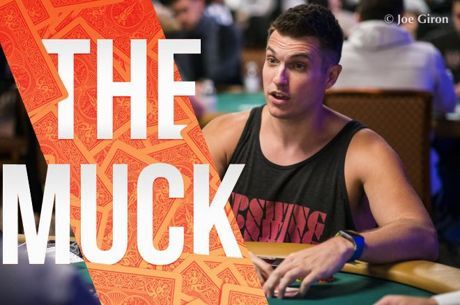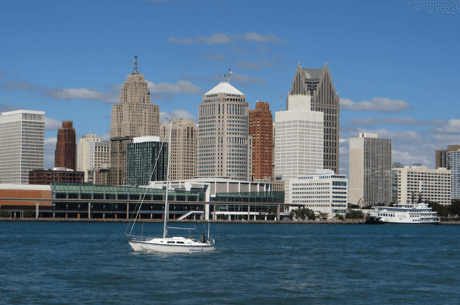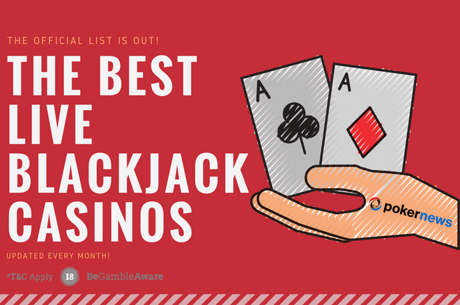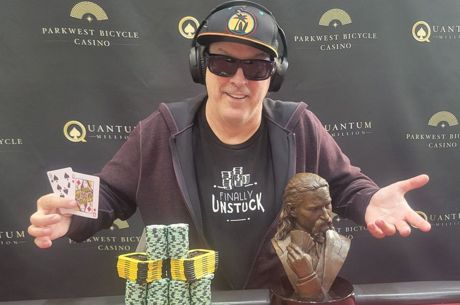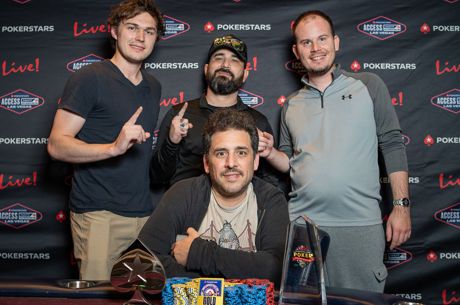Coronavirus Prevention Tips: A Guide for Live Poker Players
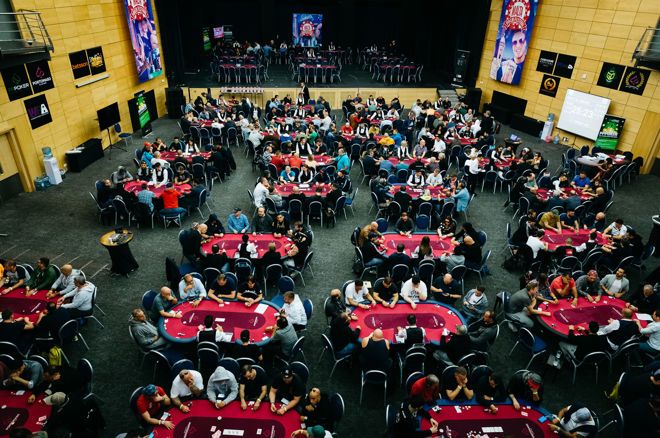
We understand this is not your usual PokerNews article. However, the latest news about the coronavirus (2019-nCoV) epidemic convinced us of the opportunity to discuss the issue with our readers. Here we offer a few proven prevention tips to those travelling the circuit to play live poker.
On January 29, British Airways announced the decision to stop all flights to and from China as a precautionary response to the coronavirus outbreak.
As reported by the Wall Street Journal's reporter Stephanie Yang, the decision came as several countries started to repatriate citizens located in the most at-risk areas of Mainland China.
Nearly a month since the World Health Organization (WHO) reported on the first cases of pneumonia caused by an unknown virus in China's province of central Hubei, the coronavirus has infected people in 12 different countries.
Although WHO Director Tedros Adhanom Ghebreyesus explains the outbreak "has not yet become a global health emergency," we believe this top be a good time to look at a few basic prevention measures we can all adopt to avoid the infection.
The online poker festival features 34 action-packed tournaments with more than $1.4 million in guaranteed prizes.
What Does This Have to Do with Poker?
Poker players are not more exposed to the risks of coronavirus' infection than anyone else �� although there are some circumstances where a few simple measures can make a big difference.
Live tournament poker is as safe as it has ever been. In terms of health hazards, playing at a live tournament event is no different than standing on a subway train or queuing for a frappuccino at Starbucks.
So, why an article about coronavirus prevention tips for poker players?
In its first reports of clinical data from initial cases of the 2019 novel coronavirus, Lancet shares that "education campaigns should be launched to promote precautions for travellers, including frequent hand-washing, cough etiquette, and use of personal protection equipment (eg, masks) when visiting public places."
To follow up on Lancet's suggestion, we decided to share with all of you a series of prevention tips that will help you avoid the coronavirus infection, enjoy your live poker games, and focus on the only thing that matter: winning your poker hands.
With more than 200 online tournaments on the schedule and over $10m in guarantees �� this is the best poker you can play in February.
Wash your hands frequently
As simple as it sounds, washing your hands frequently is (by far) the most powerful tool in your infection prevention arsenal.
According to the Centres for Diseases Control and Prevention (CDC), the best way to do it is to "wash your hands often with soap and water for at least 20 seconds."
As a poker player, this is particularly important. You are always bound to touch surfaces that have been touched by multiple people.
From the poker chips to the cards at the table, many of the things you will come into contact at a casino are a potential vehicle of germs.
But you don't need to come across something as serious-sounding as the coronavirus to understand it's good to wash your hands every now and then.
Just head to the restroom during the break, put your hands under the water for 20 seconds, and stop worrying about what could happen if you didn't.
P.S. If you don't have time for that, a bit of hand sanitiser will do the trick.
Read also: The Poker World Mourns Loss of Basketball Legend Kobe Bryant
Stop touching your your face that often
An old article published on November 15, 2012, in the journal Clinical Infectious Diseases reports that "people touch their faces an average of 3.6 times per hour, and common objects an average of 3.3 times per hour."
The same article, which was published long before the coronavirus was even a thing, stresses the fact that "touching your mouth or nose can spread the flu."
Here's a piece of advice, then: don't do it.
When there are viruses around, touching one's mouth and nose is possibly the easiest (and stupidest, perhaps?) way to transfer them between their face and their hand.
Limiting the number of times we touch our nose and mouth is one of the best and most effective ways to prevent "self inoculation" and stay healthy.
And if you are a nail-biter, you now have the perfect excuse to stop this terrible habit.
Cover your cough or sneeze with a tissue
Here's another one that you should be doing anyway, regardless of any risks of serious infections.
Coughing or sneezing on your hand before you touch cards or you play a chip trick? Not cool.
Wiping your hands clean on your trousers (or the back of your chair?) to then restart to fiddle with chips as if nothing has happened? It's beyond 'not cool. Believe me.
Poker is a community card game where we all share many things together. And etiquette has a role in it too.
Coughing and sneezing are fine. Just cover your mouth and nose with a disposable tissue and throw it away.
Don't re-use the same tissue more than once. (yack.) And if you don't want to think about the coronavirus, think about common decency.
You are at the table with other players and a dealer. No one is interested in what's in your tissue �� so use it, fold it, and throw it away.
The new 'Aurora' game engine is going to change everything. See what's new on the world's largest poker site.
You can leave the surgical mask at home
On January 28, CNN's Scottie Andrew reported on "a run of surgical masks" in the US due to the coronavirus scare.
Apparently, some major retailers are selling out on basic surgical masks as people feel these can help them reduce the risk of infection.
Planning to get yourself one?
Before you show up at a poker room with a surgical mask on, read this.
"There's no need to wear surgical masks in the US," stated University of California professor and infectious disease expert Dr. Charles Chiu.
"There's no evidence that [wearing face masks] is going to help prevent that infection."
Similarly, a paper by Columbia University, explains how the use of surgical masks is not proven to have any effects in preventing infections and should not be seen as a replacement of the basic persona hygiene measures mentioned earlier.
"Wearing a mask doesn��t mean you should avoid tried and true hygiene practices," Professor of epidemiology at Columbia��s Mailman School of Public Health, Stephen Morse said.
If you want to help yourself and stay healthier, "Wash your hands frequently, keep away from people who are coughing or sneezing, cover your coughs and sneezes, don��t touch your mouth nose, or eyes after touching an object that may be contaminated."

